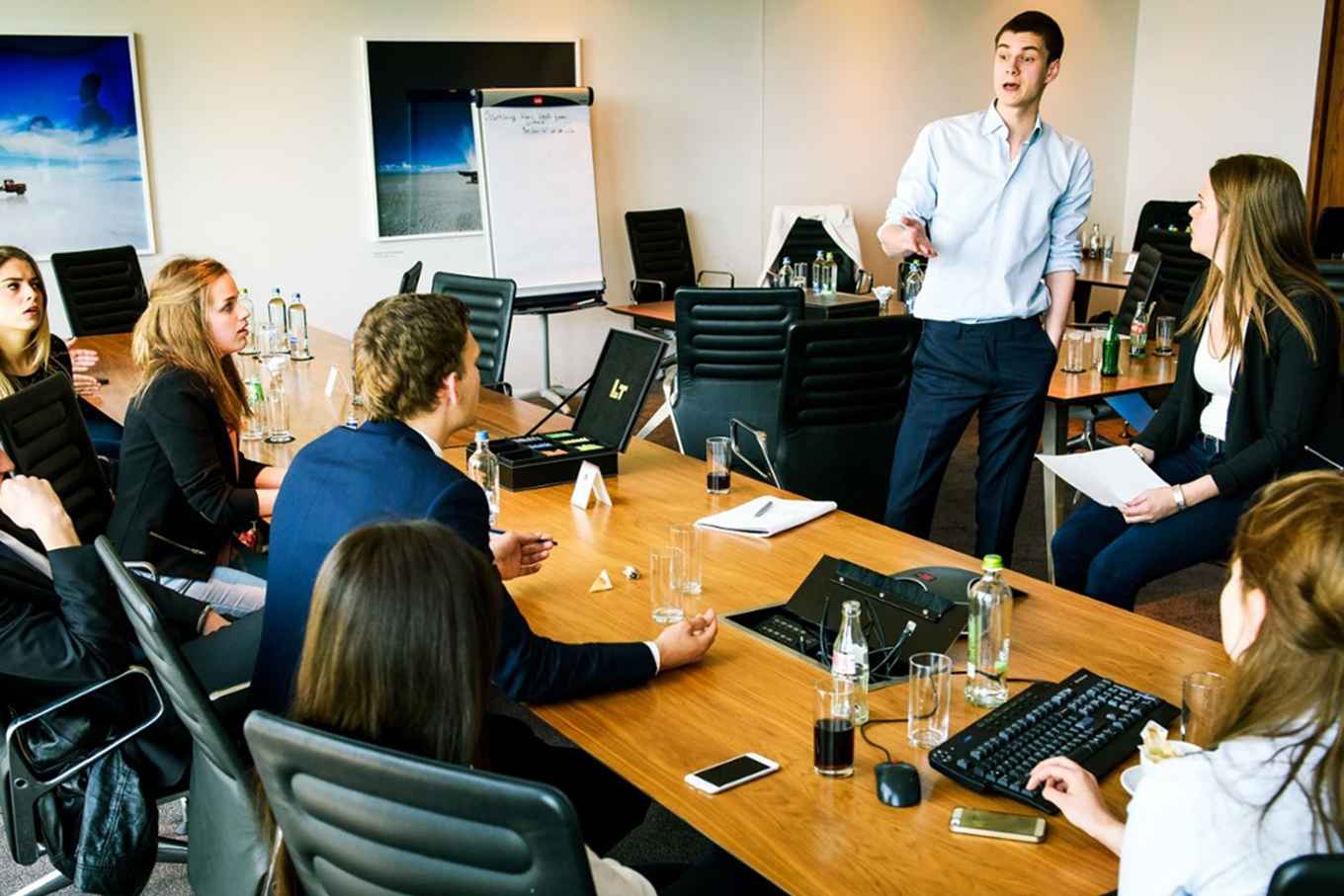The ALP in Practice: Private Law Practical
Amsterdam Law School
2 July 2019

“This ALP course is designed to guide students in the development of their professional identity as (academically trained) lawyers. That involves challenging them to apply their knowledge and skills in practice-based simulations based on realistic cases with a variety of material and procedural components.”
That is the Private Law Practical (Practicum Privaatrecht), which is given by Aukje van Hoek and Anna van Duin, in a nutshell. “The cases vary,” says Van Hoek, “but are always based on a private law topic with societal relevance that touches upon several legal disciplines at once, e.g. contract law, procedural law and EU law.”
New course
The practical is a new Master's course specially developed for the introduction of the Amsterdam Law Practice. “I had been looking for quite some time for a way to enable students to learn more actively, as opposed to passively absorbing a lecture. When the Amsterdam Law Practice was introduced, we jumped right in.”
This approach to practical cases is a new one for the Private Law department. According to Van Hoek, “The case,” which was worked out in great detail, “was based on the Dieselgate scandal. Things all started out with a visit by two clients (played by staff members) to a law firm (students). The students were given a rough idea of the issues involved and then had to seek out the facts themselves and come up with appropriate questions. The students were divided into groups, each of which was assigned a specific role. About halfway through, the students were each assigned to a different group (and role). Based on concrete assignments, strategies were developed, recommendations were made, (procedural) documents were drawn up and pleadings were held before a moot court.”
No prompting!
The course was taught largely in the Experiential Learning space, which according to van Hoek provides excellent opportunities for groups to work in seclusion. “In that setting, a lecturer becomes more of a coach. The main objective is to allow students to create their own learning experience, with as little prompting as possible from the lecturer – which is more challenging than it sounds!”
Another key objective of the course was for students to develop an awareness of their role as lawyers and their own professional identity. Each step was evaluated in terms of content and procedure, but also in terms of cooperation and ethical dilemmas. Van Hoek: “The students attended lectures on ethics and were given training in teamwork. Solving the case was not the only goal; we also wanted the students to learn to think about the moral and ethical dilemmas associated with the conflict.”
Issues
Experiential education is a new form of learning that, according to Van Hoek, is both ''incredibly fun and inspiring'' yet also has its own issues. “It can be quite a challenge to assess group work fairly,” says van Hoek. Students typically complete a number of assignments in collaboration with fellow students, which sometimes makes it is difficult to assess who did what. We found that this created misgivings on the part of certain students, for example,those in line for a cum laude.” The other contributing factors to the final grade – e.g. the portfolio, the moot pleadings – also require a type of assessment different from the cognitive, substantive assessment commonly used in “normal” courses.
For lecturers, teaching an experiential education course is, in any case, more work than the conventional model with lectures and tutorials, says van Hoek. This also raises policy-related issues, such as the number of students we can offer this type of instruction. We had sixteen students this year, but that number could grow to fifty in the coming year. From next year on, the practical will be spread out over two blocks rather than crammed into just one: “We found that it takes time before collaboration within the groups of students gets up to speed. It is great that the course will be spread out over the year; that way, legal content can also be given the attention it deserves.”